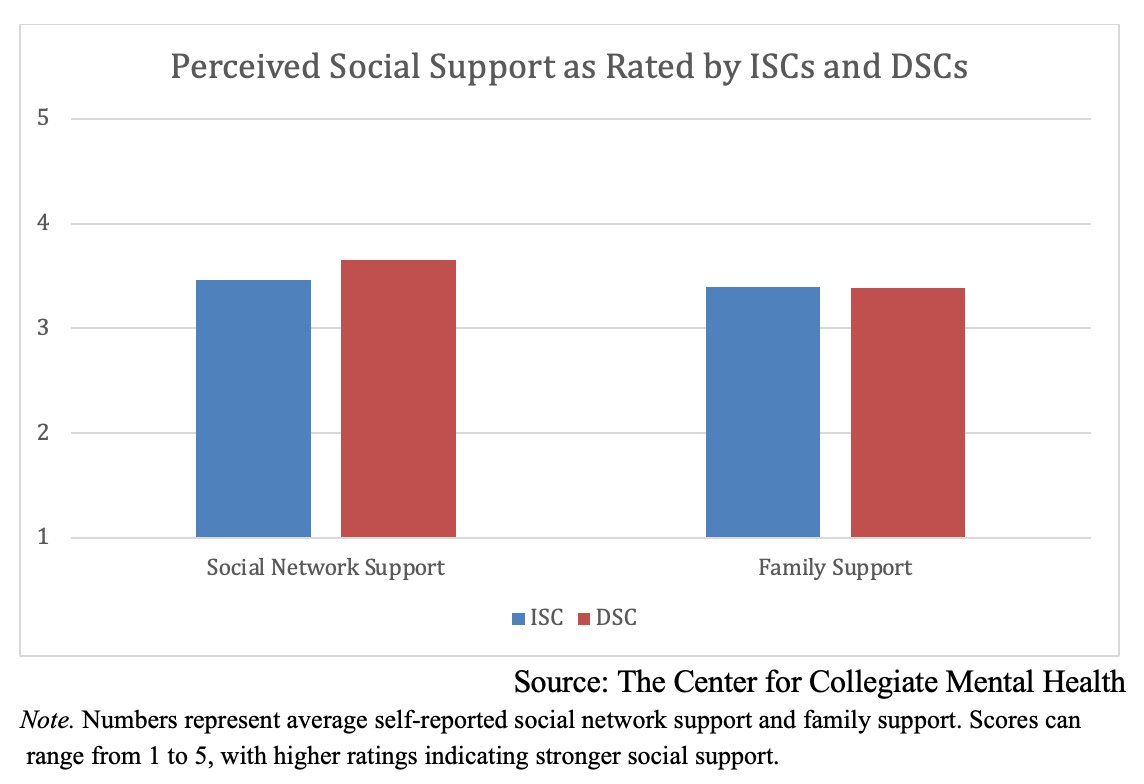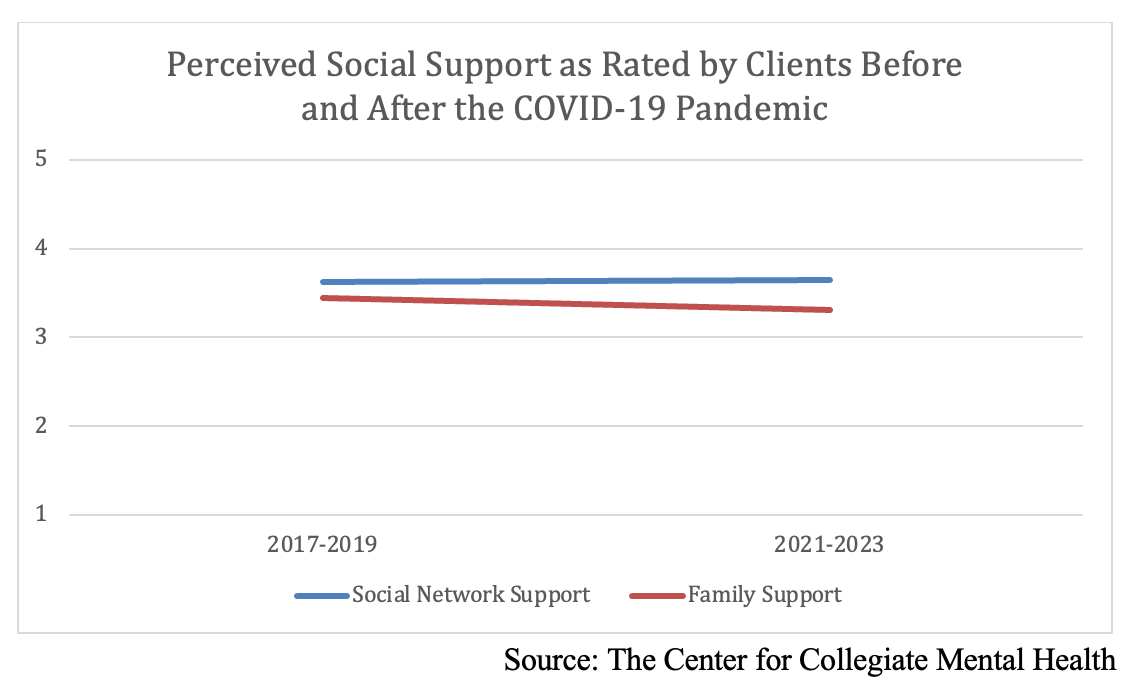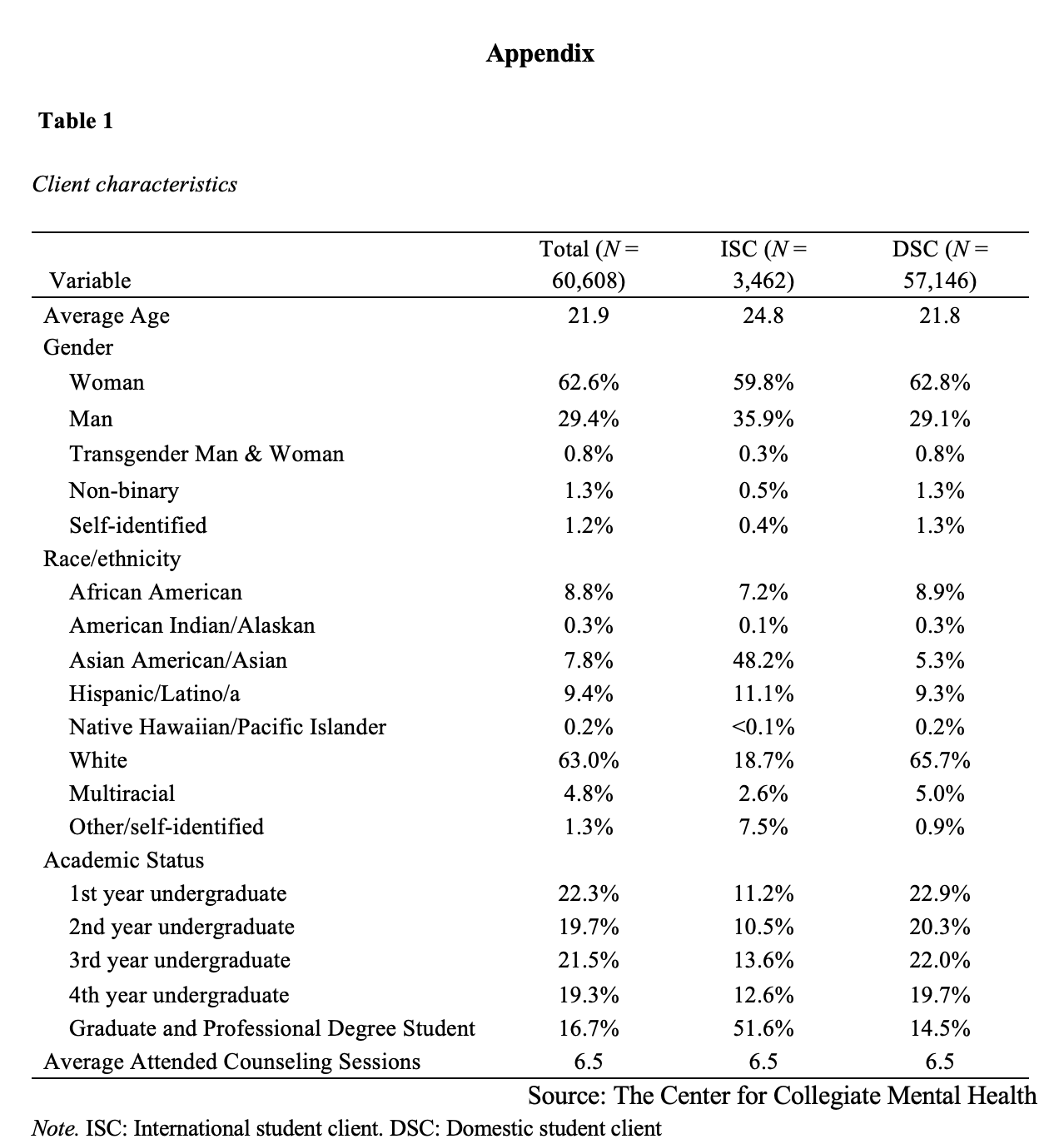How Does Social Support Aid Counseling Services for International Students?
International students make up a significant proportion of the U.S. college student population. Despite a decrease in the number of total international students in 2020-2021 after the onset of the COVID-19 pandemic, the 2021 Open Door report revealed that there were 914,095 international students enrolled in a U.S. higher education institution during that year, constituting 4.63% of the total college student population in the United States (Institute of International Education, 2021).
International students experience a unique array of challenges. While mental health distress can be one of the distant obstacles, other critical social and developmental stressors might also be encountered, including acculturative and financial stress, racial discrimination and xenophobia, language barriers, identity formation, and limited social support (Kawamoto et al., 2017; Prieto-Welch, 2016; Smith & Khawaja, 2011; Trusty & Chun-Kennedy, 2023). In a recent review of variables that are related to psychotherapy treatment outcome, social support was shown to be a significant positive predictor of client improvement across various populations, diagnoses, and treatment modalities (Constantino et al., 2021). In this blog, we investigated comparisons of social support and treatment outcomes between international student clients (ISCs) and domestic student clients (DSCs) who were seeking college counseling services. Specifically, the following questions were explored:
- Do ISCs and DSCs report different levels of social support?
- Is social support related to treatment outcomes among ISCs and DSCs?
- Are there differences in social and family support since the onset of COVID-19? If so, are these differences similar between ISCs and DSCs?
To answer these questions, we utilized data from the Center for Collegiate Mental Health (CCMH) between 2017-2019 and 2021-2023. Data from the 2019-2020 academic year were excluded due to the unique affects related to the onset of COVID-19 and subsequent temporary impact on college counseling center and academic operations. The final analysis included a comparison of 3,462 ISCs and 57,146 DSCs treated by 3,356 counselors at 122 counseling centers. More details about this sample can be found in the appendix.
Data related to support from the social network and family were collected from the Standardized Data Set (SDS) at the beginning of treatment. ISCs and DSCs were presented with two separate items, where they responded to the statement “I get the emotional help and support I need from my family (item 1) / social network (item 2)” on a five-point Likert-type scale ranging from 1 (strongly disagree) to 5 (strongly agree). Additionally, psychological distress was measured using the Distress Index (DI) on the Counseling Center Assessment of Psychological Symptoms (CCAPS), which was administered before the initial appointment and again during follow-up counseling appointments.
Do ISCs and DSCs report different levels of social support?
ISCs reported significantly lower social network support than DSCs. However, they reported a similar level of family support compared to DSCs.

Is social support related to treatment outcomes among ISCs and DSCs?
First, we tested whether students (both ISCs and DSCs) who reported stronger social support experienced more symptom reduction during counseling. We found that social network support was unrelated to outcomes. However, those who reported stronger family support had slightly more improvement in symptoms during treatment than those with lower family support (see figure below).

We then tested whether the relationships between social network/family support and change during treatment were different for ISCs and DSCs. While both ISCs and DSCs demonstrated comparable levels of general symptom improvement during treatment, stronger family support was equally related to outcomes, and social network support was equally unrelated to outcomes regardless of their international student status.
Are there differences in social and family support since the onset of COVID-19? If so, are these differences similar between ISCs and DSCs?
At intake, the overall sample reported approximately the same level of social network support before and after the onset of the COVID-19 pandemic. However, they reported lower family support after the pandemic than before COVID-19. This pattern was similar between ISCs and DSCs.

Summary, Implications, and Future Directions
The following takeaways are noted:
- ISCs and DSCs have different perceptions of their social support system. ISCs reported comparable levels of family support compared to DSCs, but they reported slightly less support from friends and acquaintances.
- College counseling centers appear to be equally effective in treating both ISCs and DSCs, as both groups experienced comparable improvement in symptoms during treatment. Family support is associated with better treatment outcomes for both ISCs and DSCs. However, social network support is unrelated to clients’ outcomes on average.
- Although social network support was unrelated to symptom reduction during counseling, ISCs reported significantly less social support than DSCs when they entered treatment. As such, clinicians are encouraged to collaboratively work with international students to explore opportunities to increase their sense of belongingness and inclusion in the collegiate community. Counseling centers could also undertake an active role in the institution’s inclusion initiatives, including Diversity, Equity, Inclusion, and Belongingness (DEIB) endeavors, to create a more welcoming and supportive environment for international students. This might involve the formation of new programs or the fortification of existing ones, such as support groups, psychoeducation workshops on acculturation and adjustment, and providing community resources for international students.
- Because ISCs reported relatively strong family support, which may improve treatment outcomes, clinicians might provide enhanced care for ISCs by exploring their family support symptoms, problem-solving ways to maintain family connections over long distances, and helping clients find local relationships that replicate the helpful aspects of their current family support system.
- While this particular study examined the collective group of ISCs students, it is essential to note that ISCs are not a monolith. There are various intersectional identities, cultural practices, and language barriers that impact students and significantly vary depending on their country of origin. Thus, in future research, it will be vital to explore how these specific factors affect the presenting concerns and saliency of social network and family support during treatment for ISCs.
References
Constantino, M. J., Boswell, J. F., & Coyne, A. E. (2021). Patient, Therapist, and Relational Factors. In Barkham M., Lutz, W., & Castonguay, L. G. (Eds.). The 50th Anniversary Edition of Bergin and Garfield's Handbook of Psychotherapy and Behavior Change (pp. 225-262). doi:10.1055/a-1686-4682Institute of International Education. (2021). “International student enrollment trends, 1948/49-2020/21.” Open Door Report on International Education Exchange. Retrieved from http://www.opendoorsdata.org.
Kawamoto, A., Youn, S., Bartholomew, T. T., Castonguay, L. G., & Locke, B. D. (2018). Inter- and intra-group differences in psychological concerns among international students. Counselling Psychology Quarterly, 31(2), 186-204. doi.org/10.1080/09515070.2016.1274962
Prieto-Welch, S. L. (2016). International student mental health. New Directions for Student Services, 2016(156), 53–63. https://doi.org/10.1002/ss.20191
Smith, R. A., & Khawaja, N. G. (2011). A review of the acculturation experiences of international students. International Journal of Intercultural Relations, 35(6), 699–713. https://doi.org/10.1016/j.ijintrel.2011.08.004
Trusty, W. T., & Chun-Kennedy, C. (2023, September 8). International students are more socially isolated than domestic students, and the gap is growing after COVID-19. Center for Collegiate Mental Health Blog. https://ccmh.psu.edu/index.php?option=com_dailyplanetblog&view=entry&year=2023&month=09&day=07&id=44:international-students-are-more-socially-isolated-than-domestic-students-and-the-gap-is-growing-after-covid-19

This blog post was written by CCMH Business Team member, Michael Tan, M.S. who is a Doctoral Student in Clinical Psychology at PSU and a part of the Castonguay Lab.
Published September 5, 2024

